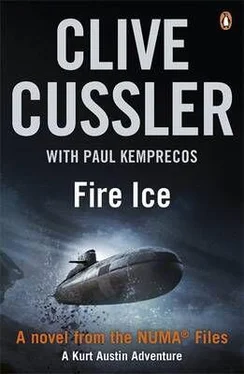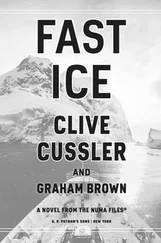The captain reported the incident when he got back to port, but strangely he told the authorities nothing about the girl. His omission was explained in the epilogue.
"Some of my dear readers may have wondered what became of the little mermaid. Now that many years have passed, I feel free to reveal the truth. When I found the girl floating barely alive on the billows, I had been married five years. In all that time, my lovely young wife had been unable to conceive a child. Upon my return to the Caucasus, we adopted Maria as our own. She was a joy to both of us before my wife died, and became a lovely young woman who, in time, married and had children of her own. Now, in my retirement, I feel that it is time to reveal to the world the precious gift the sea gave to me after years of inflicting so many hardships."
Perlmutter put the book down and picked up the Times review. The reviewer had been critical of the writing, but intrigued by the story of the mermaid, which he described at great length. Perlmutter guessed that some sharp-eyed Lloyd's operative had seen the reference to the Odessa Star and attached it to the claim file on the missing ship.
The captain's account had been so fascinating Perlmutter had forgotten his snack. He remedied the situation quickly by slathering twenty dollars' worth of truffle onto a cracker. Back once more in the present, Perlmutter stared out the window as he savored the delicate earthy taste. Then he remembered Bosworth's comment about Lord Dodson. He read her note again and wondered why the Dodson family would have pulled the archives from the library.
Despite his ungainly bulk, Perlmutter was very much a man of action. He picked up the phone and dialed a couple of acquaintances in London. Within minutes, he learned that Lord Dodson's grandson, himself a lord, was alive and living in the Cotswolds. Perlmutter got a phone number, al- though his source made him swear under pain of eating at Burger King not to reveal where he had gotten it. Perlmutter called and identified himself to the man who answered the phone.
"This is Lord Dodson. You say you're a marine historian?" He sounded bemused but pleasant, speaking in the clipped accent of the British upper class.
"That's correct. I came across a reference to your grandfather's memoirs while doing some research on a ship called the Odessa Sta,; The library apparently relinquished the material at the request of your family. I wonder when the material might be going back to Guildhall."
There was a silence on the other end. Then Dodson said, "Never! I mean, some of the material is much too personal in nature. You must understand that, Mr. Perlman." He sounded flustered.
"The name is Perlmutter, if you don't mind, Lord Dodson. Surely the historical material could be made separate from the personal."
"I'm sorry, Mr. Perlmutter," Dodson said, getting his voice under control. "It's all part and parcel. It would do no one any good and cause a great deal of painful embarrassment if this material were made public."
"Forgive me for being obtuse, but I understand that he willed all the material to the library to be put in the archives."
"Yes, that's true. But you have to understand my grandfather. He was a man of towering rectitude." Catching the unintentional comparison to his own character, Dodson said, "What I mean was that he was naive in many ways."
"He couldn't have been too naive to hold a high post in the Foreign Office."
Dodson laughed nervously. "You Americans can be damnably persistent. Look Mr. Perlmutter, I don't wish to be rude, but I must terminate this conversation. Thank you for your interest. Good-bye."
The phone went dead. Perlmutter stared at it for a moment and shook his head. Strange. Why would the old boy be so upset at an innocent query? What secret could be so painful after so many years? Well, he had done his best. He punched out the number Austin had given him. He would let others determine why the Odessa Star could upset someone more than eighty years after the ship had gone to her grave in the Black Sea.
MOSCOW, RUSSIA
THE NIGHTCLUB WAS a short walk from Gorky Park, in a narrow alley that had once been a rat-infested flophouse for vodka-soaked human derelicts who used trash-can covers as their pillows. The drunks had been displaced by swarms of young people who looked as if they had stepped off a UFO. The crowds gathered each night out- side a blue door lit by a single lamp. The unmarked door was the entrance to a Moscow night spot so trendy it didn't even have a name.
The enterprising young Muscovite who'd founded the club had seen the potential in bringing together Moscow's crass nouveau riche and the tackiest of Western pop culture. He'd modeled his venture on Club 54, the defunct but exclusive New York dive that had made international headlines before it drowned in a sea of tax woes and illegal drugs. The club was located in a cavernous space that had once housed a state-run sweatshop where underpaid workers toiled making ripoffs of American jeans. Clubgoers who were allowed inside found frenetic dance music, stroboscopic lighting and designer drugs supplied by the Russian Mafia, which had taken over the club after the original owner died of acute lead poisoning.
Petrov stood at the edge of the crowd, watching. The hopeful patrons wore bizarre costumes to attract the attention of the burly doorman in black leather who stood between them and drug-induced ecstasy. Petrov stared at the crowd in wonder for a moment, then shouldered his way between a young woman dressed in a translucent plastic halter and shorts and her male companion, who wore an aluminum foil bikini. The doorman glared at the approaching stranger like a bull mastiff watching a cat move in on its food dish. Petrov stopped short of the entrance and handed the doorman a folded sheet of paper.
He read the note with small, suspicious eyes, pocketed the hundred-dollar bill inside, then called another guard to take his place. He disappeared through the blue door and returned with a stocky middle-aged man dressed in the uniform of a Soviet naval officer, complete with high-peaked cap. The officer's chest was covered with more medals than anyone could have earned in several lifetimes. The guard pointed out Petrov. The man in uniform scanned the faces, scowling. Recognition flickered in his heavy-lidded eyes and he waved Petrov inside.
The full impact of the pulsating music almost knocked Petrov over. Out on the huge dance floor, a mass of bodies writhed as one to the monotonous rave beat from dozens of speakers that looked as if they had been used at Woodstock. He was grateful when the naval officer led him down a passageway into a storage room and closed the door so that the sound was a muffled throb.
"I come here sometimes to get away from that racket," the naval officer said. The commanding voice Petrov remembered had become gravelly, and there was the stale smell of vodka on the man's breath. His thick lips curled in a smile. "I thought you were dead, tovarich."
"It's a miracle I'm not dead, Admiral," Petrov said, eyeing the uniform from head to toe. "Some things are worse than death."
The admiral's smile vanished. "You don't have to tell me how low I have fallen. I still have eyes. But no lower than someone who would amuse himself at the expense of an old comrade."
"I agree, but I am not here for amusement. I came to ask your help and to offer mine."
The admiral let out with a wet laugh. "What help can I give you? I am nothing but a clown. The human garbage that runs this place keeps me around to entertain their patrons and remind them of the bad old days. Well, they were not bad for everyone."
"True, my friend. Nor were they good for everyone," Petrov said, bringing his hand up to the scar that disfigured his face.
Читать дальше












